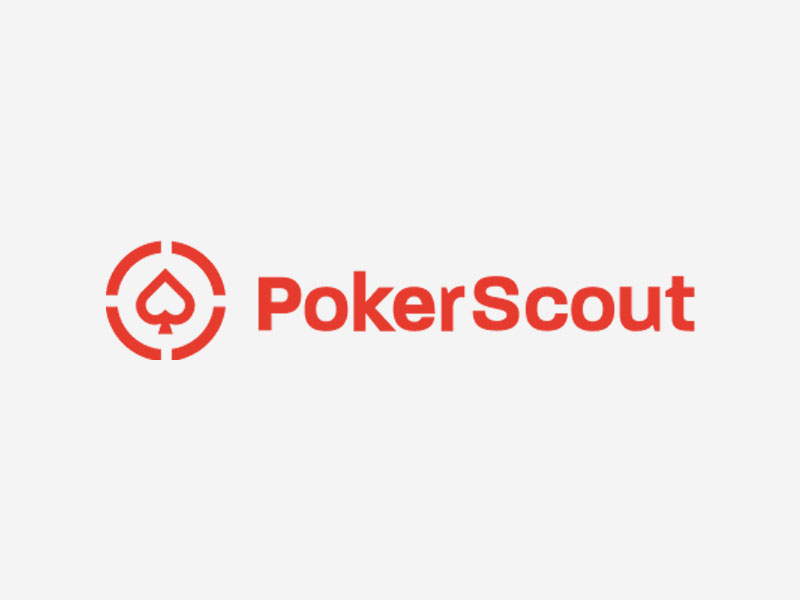A very interesting conversation dominated Poker Twitter on Wednesday evening. The discussion had to do with the decision to prohibit Heads Up Displays (HUDs) network-wide once the three-state online poker liquidity sharing arrangement between Nevada, New Jersey, and Delaware begins on May 1.
The decision didn’t sit well with some online poker players, who see data collection and HUDs as not only a useful study tool, but as a means of self-policing online poker games.
One very vocal critic was Mike “Gags30” Gagliano, a well-respected professional poker player from New Jersey. Gags took to Twitter to explain his consternation when it comes to the new policy.
Awful to see @WSOPcom decide to not provide players with hand histories (HH). It’s been proven many times that sites are NOT capable of policing games entirely by themselves. There are many instances of cheating and bot rings being caught ONLY because players have found them. https://t.co/4tqSZIbeKx
— Gags30 (@Gags30poker) April 18, 2018
Why are HUDs being prohibited?
HUDs have been prohibited by the Nevada Gaming Control Board since online poker went live in April 2013. However, the use of the somewhat controversial online poker software wasn’t addressed by the New Jersey Division of Gaming Enforcement’s regulations, keeping HUDs off of the prohibited software list.
With the two states (plus Delaware) about to begin pooling players, regulators in the two states needed to come to an agreement about HUDs, and the decision was an easy one: prohibit them network-wide. The alternative, allowing HUDs network-wide, would have required a much trickier rewrite of Nevada regulations.
Why some players view this as a problem
Gags made it clear that he’s not necessarily pro-HUD use, rather he is concerned that the prohibition will create game integrity issues because in addition to HUDs being banned, WSOP.com doesn’t offer easily downloadable hand histories, and only allows players to view stored hands through an in-client hand-replayer for a period of 30 days.
Without downloadable hand histories it is absolutely impossible for online poker games to be considered safe and free of cheating, collusion, and bots. If you are a player in the US, i implore you to petition @WSOPcom to allow players to have downloadable hand histories!
— Gags30 (@Gags30poker) April 18, 2018
The problem with that is the two issues are largely connected. In addition to downloadable hand histories giving strong players an even greater edge over recreational players (more on this in a moment), it would make it much easier for someone to circumvent the no HUD policy, and the rule would be near unenforceable.
Gags’ point of view is online poker sites and regulators are largely incapable of properly policing their games without the assistance of players. To make his case he pointed to the cheating scandals uncovered by players at Absolute Poker and Ultimate Bet in the heyday of the poker boom.
I wanted to add to this thread to clarify something.Originally sources had told me that @WSOPcom has interpreted regulations to mean huds are against rules. @billrini has since clarified that this was discussed with regulators, and the NGC is the one which made the interpretation
— Gags30 (@Gags30poker) April 19, 2018
Another prominent member of the poker community, Matt Berkey, argued that the highly regulated online poker markets in Nevada, Delaware, and New Jersey are far removed from these previous examples.
To elaborate on each point. The regulated market is governed by gaming, which creates a higher security scrutiny than the aforementioned sites abide by. Would @WSOPcom benefit from a player on the security team doing mass data analysis? Probably, but that’s for them to decide
— matt berkey (@berkey11) April 19, 2018
Berkey went on to say that not only would it be difficult for one person to possess enough statistical evidence to uncover cheating, but that the system for doing so — the sharing of statistical data by strong players — would be detrimental to the long-term health of online poker.
However, what shared hhs do allow is a rapid progression of the learning curve/study. This is fine for those with a leg up, but the barrier of entry will grow exponentially as the learning curve sharpens, not to mention the soft money is eviscerated, declining health of the game
— matt berkey (@berkey11) April 19, 2018
Two key questions
There are two parts of this conversation I feel need more fleshing out:
- How effective are players at detecting bots/collusion/cheating compared to the internal controls put in place by operators and regulators?
- In terms of game integrity, why should online poker be treated differently than any other online or land-based casino game overseen by a legitimate regulatory body?
Do we really need HUDs (and players) to police games?
There are well-known examples of online poker players uncovering cheating or bot users, but by and large, this is the exception and not the norm. Poker players have a role to play in drawing attention to potential cheats, but it’s no longer their place to become the investigator.
This is the key difference, I think. The onus is not on players to Columbo their way through foul play. There is a regulatory body that takes impropriety very, very seriously. https://t.co/aYVPBOeteN
— Jessica Welman (@jesswelman) April 19, 2018
And if they did have worries about the dice, they wouldn’t create a sting operation at the Mirage on their own. They would call NGC.
— Jessica Welman (@jesswelman) April 19, 2018
Furthermore, it’s important to note that most perpetrators are caught by the in-house security team.
Actual data on this front is rare, but it does exist. During a 2016 hearing in Michigan, PokerStars representatives testified that the company deals 12 million hands of poker a day, and gets about nine collusion complaints per day, and three complaints of bots per day. According to PokerStars’ testimony, 90 percent of colluders are detected in-house by PokerStars.
The percentage of violators caught by internal controls is even more likely to skew in the operator direction in highly regulated markets like Nevada and New Jersey, where robust regulations are in place — both jurisdictions are among the most heavily regulated in the world.
For instance, operators are required by law to have certain security systems in place (most go above and beyond what is required), and regulators can put these systems through their paces whenever they want.
The regulators have investigators that can request EVERYTHING we collect on the games from geolocation data to hand histories (plus a whole lot of other stuff). That’s in addition to our own protocols.
— Bill Rini (@billrini) April 19, 2018
If we were only talking about gray and black markets, overseen by paper tiger regulatory bodies, the ability of players to police the games would be vital. Complaints would largely go uninvestigated, so the burden of proof would be left up to the accusing player. That is not the case in Nevada or New Jersey.
These are states with decades of experience policing casinos. Even if they’re a little behind the curve when it comes to online gaming, these are legitimate, trustworthy regulatory bodies. They’re not rubberstamping these sites and then sticking their head in the sand when a customer files a complaint.
New Players Get A Free Bonus At WSOP.com NJ
-
-
Visit WSOP NJ
-
$10 No Deposit
100% to $400 With Deposit
-
WSOP NJ Review
Overall Grade A-
- Games B+
- Support B
- Banking A-
- Player Value A
-
The legal, regulated difference
Quite frankly, not trusting Nevada or New Jersey regulators to police online poker games is like not trusting the Borgata or Bellagio to use properly balanced dice at a craps table.
The fight for legal, regulated online poker wasn’t solely for access, it was also to bring proper consumer protections to the game.
Despite a long history of cheating in poker, players in brick & mortar poker rooms aren’t allowed to cut the cards before the deal. The entire reason to play in a regulated gaming environment is so you don’t have to worry about being cheated.
And if you feel that there is an issue which involves the integrity of the game, you can either report it to us or you can report it to the relevant regulator.
— Bill Rini (@billrini) April 19, 2018
The notion that online poker games are for all intents and purposes unable to be policed without player assistance is a very dangerous accusation that opens a Pandora’s Box of potential issues.
It’s a difficult job for sure. But a tacit admission player assistance is required to police a game opens a can of worms that benefits no one. Imagine a casino telling Gaming they have a new roulette game, but they can’t police it without player assistance. Game =/= approved
— Steve Ruddock (@SteveRuddock) April 19, 2018
Bottom line
Online poker players who file complaints in regulated US markets should be confident that their complaint is being properly investigated.
In unregulated markets, the onus was almost entirely on the player. Players had to sense something was afoul and then go about investigating and in many cases proving it before action was taken.
In legal US markets, the player’s role in this process begins and ends with filing a complaint. It then falls on the operator and regulators to investigate.
The post Use Of Poker HUDs And Access To Hand Histories Leads To Debate appeared first on .






